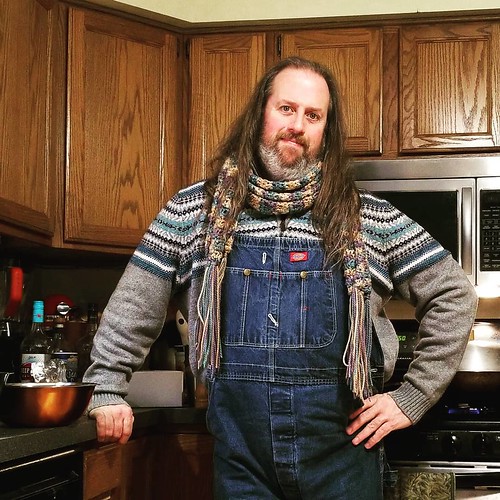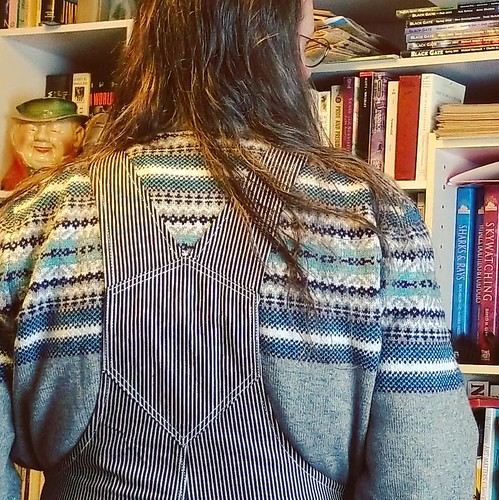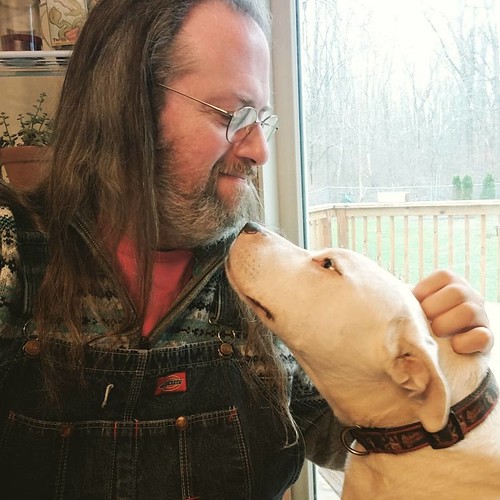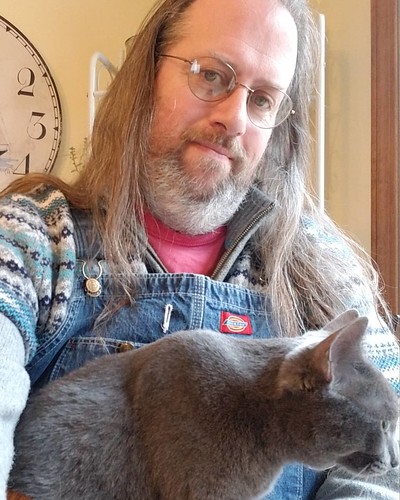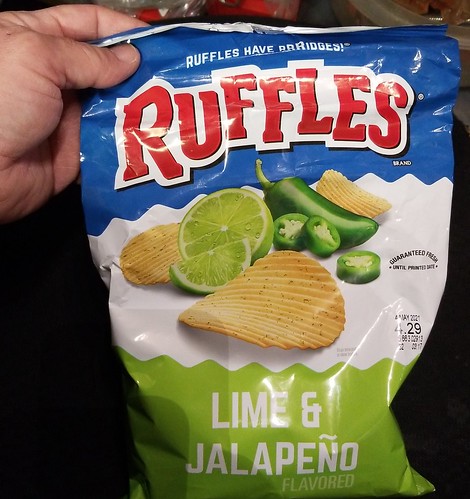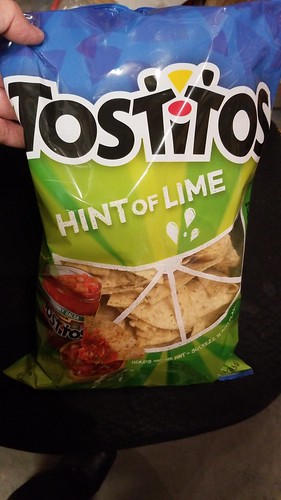A few more books I've read of late:
:: I can't possibly keep up with the eternal flood of new books that is Star Wars publishing, but I do try to pick and choose the ones that sound good or come with good referrals. Last year, Lucasfilm announced a new project in their Star Wars publishing empire: a new series within the larger overall tale that focuses on life in our favorite galaxy far, far away two hundred years before the rise of the Sith, the fall of the Republic, and the arrival on the scene of a couple generations of Skywalkers. This series is called The High Republic, and it depicts the Republic at is height and the affairs of the Jedi as they act as the guardians of peace and justice and all that.

The High Republic is going to play out in books, comics, and who knows what else (no filmed entertainment set thusly has been announced yet, but who knows what the future may bring, as currently Star Wars is changing directions on an almost monthly basis). It all starts with Light of the Jedi by Charles Soule, and...well, it's not bad, but it's got a lot of room to get better.
Light of the Jedi has to do a lot of heavy lifting: it has to establish the time period we're in, which means that it has to show all the ways this time period contrasts with the one with which we're most familiar. It also has to establish the new threat that the Jedi are going to be facing through all this, which can't be the traditional Sith because canon has already established that the Sith have been gone for centuries and they stay gone until Darth Sidious steps into the open around the time of The Phantom Menace. Light also gives us a lot of viewpoint characters, probably too many, all having adventures that play out over relatively short chapters.
The sad result is that Light of the Jedi ends up feeling overstuffed and underfocused, so that in its attempt to be really exciting it ends up under-engaging. I have to admit that I came close to DNFing this book halfway through, and ended up skimming a lot of the last act. It's a shame, because there is interesting stuff here and it does set up some possibly exciting story possibilities to come. The book does the job of getting The High Republic out of the gate, but it's not the galloping start it should have been.
:: I'm reading more indie books of late, which I should do because I'm an indie author myself, and which everybody should do because there's a lot of great writing out there beyond the world of the standard publishers. I've been following author Anna Vera on social media for a while, and I finally got around to reading her book When Stars Burn Out, a dystopian science fiction novel about the zombie apocalypse and the human response to it.

I freely admit that this genre is not generally my cup of tea, which is to say, it's almost never my cup of tea. But I do enjoy it on a selective basis when it's handled well, and Vera is one of the ones who handles it well. There is darkness and grim death here, because how could there not be, but for once it's not wildly overdone with spectacular deaths just for the sake of deaths (like in, say, The Walking Dead). There are intriguing mysteries and an interesting society of people trying to live without becoming zombies themselves, and the character work is particularly good. Heroine Eos Europa is a fascinating person, and I hope to read more of her adventures soon.
:: I've had Paris to the Moon by Adam Gopnik on my shelf for years, and I finally got around to it. I have to admit to finding it slightly disappointing. I was expecting a travel book, but it's really not that; it's a collection of essays Gopnik wrote in the 1990s for The New Yorker about his and his family's experiences in Paris when they packed up and moved there. It's all well-written and all, but unlike the best travel writing, Paris to the Moon's essays feel distinctly rooted in a particular time and place, and from a particular vantage point. I felt an odd disconnect while reading it, like perusing the mundane dispatches from someone's life decades ago.

It's not bad, though! Not at all, and if life in Paris interests, there's much here that's interesting. I cite one passage, which I found particularly amusing:
Late last year the French government assembled a committee to choose a name for the vast new stadium that's being built in a Paris suburb. The committee included an actor, and "artiste", some functionaries, and even a few athletes. It took a long time deliberating over its choice. Names were submitted: Some people liked the idea of naming the stadium after Verlaine or Saint-Exupery, and lots of others liked the idea of calling it Le Stade Platini, after Michel Platini, the great French soccer player. At last, late in December, the committee announced that it had come to a decision, and the government decided to broadcast the verdict on television. The scene was a little like the end of the Simpson trial: the worried-looking jurors filing to their seats, the pause as the envelope was handed to the minister of youth and sports, the minister clearing his throat to read the decision to the nation. The stadium that would represent France to the world, he announced, would be called (long, dramatic pause) Le Stade de France. The French Stadium. "Banal and beautiful at the same time," one journalist wrote. "Obvious and seductive. Timeless and unalterable."
I suppose there is something oddly comforting, albeit in a kind of depressing way, in learning that the bureaucratic way of spending a lot of time and money coming to a perfectly boring decision isn't something unique to the United States.
:: Katie Mack's The End of Everything (Astrophysically Speaking) is a book about the end of our universe.

Apparently the current state of science has a handful of scenarios by which our brightest minds think our universe will end, and Dr. Mack has written this helpful, clearly-written, and humorous (given the subject matter) book summing it all up. If you like a bit of science to help back up your low-level existential dread, The End of Everything is the book for you! Yes, there are passages that I didn't entirely understand, but Mack does a very good job of explaining how we came to our current theories of how the universe began, and given our understanding thereof and of how the universe works now, how we might expect it to end. Her ultimate takes aren't terribly optimistic (for ideas on what the end of the universe might look like from the standpoint of sentient starfaring civilizations, Michiu Kaku is the author to seek out), and there's something particularly chilling about what's called the "Heat Death" of the universe, as ultimately the unending expansion of space results in our skies growing ever, ever darker as the stars become too far from us for light to ever arrive. But, as Dr. Mack writes:
In fact, the one thing that all the universe-ending scenarios we've already discussed have in common is that they definitely aren't coming around anytime soon. As far as we can tell from our best understanding of physics, we have at least tens of billions of years before even the most extreme version of a sudden Big Crunch reversal could occur, and no Big Rip could be less than a hundred billion years off. A Heat Death, considered by most to be even more likely, would be so far into the cosmic depths of the future that we hardly have terms to describe it.
So there's that. Of course, she writes this just before sequeing into a chapter about a "Vacuum Decay", in which a bubble of true vacuum forms someplace and expands at the speed of light, destroying everything it takes in as it expands. This, apparently, is a thing that can happen at any time, and since the horizon of the destructo-bubble's edge moves at the speed of light, we'd never know it was coming. For all we know, there could be a universe-destroying bubble right now someplace, expanding toward us at the the speed of light...and depending on where it is, that's how much time we'd have left. So...sleep tight, I guess!
:: Finally, a re-read of a book I liked a lot as a kid. Between 7th and, I think, 9th grades, I went on a huge epic fantasy reading kick. I read a lot of epic fantasy back then, between roughly 1982 and 1986. (After that I fell into spy and espionage fiction in a big way.) In those years, epic fantasy was far more dominated by the JRR Tolkien model than it is now, thankfully. I love JRRT, but wow, did the genre need some new thinking for a long time. Luckily that new thinking has long since arrived and the genre is healthier for it...but for years fantasy novels seemed really stuck in the same trope wonderland, and the biggest title in the post-JRRT swords-and-dwarves-and-elves type of fantasy was Terry Brooks's The Sword of Shannara. I read Sword once, back in my junior-high days (along with its two immediate sequels, The Elfstones of Shannara and The Wishsong of Shannara), but I've never revisited them since...until now. A while back I was shopping at my local Savers store and I found the original three Shannara books in the Used Books section*, so I picked them all up. Last week I finally re-read Sword, and...well, it was like dipping my toes in Heraclitus's river. It's not the same river it was when I was thirteen.

It's close to forty years since I read Sword all the way through, so I don't remember much of it at all from back then, except that I do remember finding it kind of padded back then. Nothing specific, but I definitely recall skimming through chapters I didn't really care that much about. And lo and behold...that happened again.
In Sword you have the Tolkien model almost in its entirety: a malevolent Dark Lord is threatening the existence of everything, while the races of Man (it was the 70s, so yes, it's called "Man"), Dwarves, and Elves don't really get along terribly well. There's a single magical weapon, though, that can prove the Dark Lord's undoing, and it can only be wielded by a specific individual who happens to be a member of a peaceful, pastoral people who live about as far away from the Dark Lord's palace as you can get. A wizard-like figure who is known all over the world for his strange comings and goings arrives to send our young hero on his quest, which after many dangers leads him to a single quest to find the magic weapon. On this quest he is joined by a...what should we call it? A "fellowship"?...helpful team comprising men, Elves, Dwarves, and our hero and his pastoral buddy.
Off they go to deal with the weapon and the Dark Lord, but eventually their "fellowship" is forced to break apart, and the others go off to deal with specific wars and stuff while Our Hero proceeds to his ultimate journey into the Dark Lord's realm, which is a barren desolate wasteland of dust and sharp mountains.
I don't want to sound dismissive, but Sword really really does read like a Tolkien clone for people who wanted more Tolkien but who didn't want to re-read Tolkien for the 80th time. All the tropes are here, with just about all the story beats; what Sword seems most to accomplish is reducing the Lord of the Rings from its 576,000 words down to about 226,000. This isn't always a good thing, as I found it very hard to care about some of the "side adventures" that Brooks takes us on in the back half of the book. We meet a guy named Balinor early on, but we get little of his backstory until much later, which we get right before the book diverts us to his struggles against his crazy jealous brother. I found it nearly impossible to care about any of that.
Ultimately I found Sword a slog to get through this time. Brooks overwrites and overdescribes to an amazing degree, and from a stylistic standpoint, his paragraphs are way too long, sometimes lasting entire pages. And look, I know he wrote this in the 1970s, but still: it's a 726 page book, and our first (and only) female character doesn't show up until we're well past page 400.
I do plan to read the other two books in the trilogy at some point. I remember liking Wishsong most of all from these, and I've also heard that Brooks's various explorations in the Shannara universe after these initial volumes perk up quite a bit. I don't know if I'll go any farther past Wishsong, but...you never know.
* I don't know about anybody else's Savers location, but the Used Books section at my local one almost always has something worth grabbing. I never leave that place without a book or two. Not huge hauls, but there's always something!
